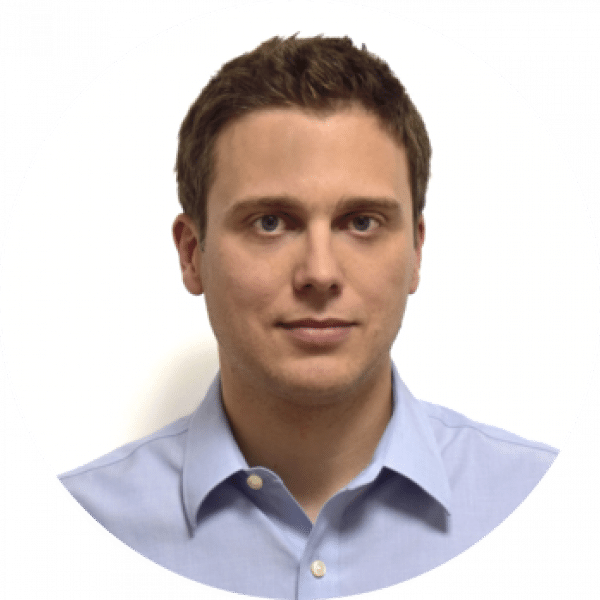Introduction
Benjamin shifts the medical investment to a more preventive approach by pioneering a new primary care model that completely reshapes the way general practitioners practice and are organized in France. Mobilizing a multidisciplinary team of doctors, engineers and organization experts, he manages to tackle at the same time the challenges of quality, accessibility and cost-efficiency of the primary care practice.
The New Idea
With a new model for a dense, qualitative and accessible primary care network, Benjamin reverses the “hospital-centered” tendency to allow prevention a greater space in the healthcare system. To avoid a two-tiered medicine, he shifts the medical investment to a much more preventive, empathic, collaborative and cost-efficient approach that ensures every citizen to have access to qualitative primary care, and contributes avoiding costly hospitalizations.
Benjamin is creating a new framework in which general practitioners can work as a team and learn together. Breaking with the closed, individualist and paternalistic approach that currently rules the primary care sector in France, Benjamin shifts the general practitioners’ practice towards collaboration between peers as well as with other professions (engineers, organization specialists), other organizations and networks (NGOs, network of nurses, …), and with the patient. Supporting the general practitioners in operating this mindset and attitude change towards collaboration is indeed a necessary condition to completely rethink the organization of the primary healthcare sector. This allows to tackle the challenge of accessibility to primary care for different communities: for instance, Benjamin’s model facilitates the co-development and implementation of a telemedicine project involving both nurses and general practitioners to reach people with reduced mobility, as well as the collaboration between general practitioners and NGO social workers in rethinking the care protocols for arriving migrants.
Through a first primary healthcare pilot center that delivers 3,000 consultations a month, he clearly demonstrates the value of his approach for the patients, the practitioners and, at a macro level, for the national healthcare system. This gives Benjamin’s organization Ipso Santé the credibility to shift the research investment priorities to lead studies that will help improving primary care. To provoke a sustainable mindset change, Benjamin also impacts teaching: he turns the doctors of his team into Ipso Santé ambassadors who infuse his new approach of primary healthcare through teaching in universities of Medicine. With this proof of concept that has been rigorously documented, Benjamin also aspires to equip other entrepreneurs to create more medical offices of this kind, and influence other medical centers to make their practices evolve. What is more, Benjamin endorses an advocacy role by sharing his vision and results with the Public Institutions, including health authorities, that have already identified Ipso Santé as a disruptive innovation.
The Problem
The health care system in France is subject to increasing demographic and economic pressure which degrades access to care and fosters a two-tiered medical system.
Due to a well-anchored “hospital-centered” culture, primacy used to be given to medical technique over prevention and accessibility. Thus, for years, focus has not been in reinforcing primary care, whereas, as it has been highlighted by the WHO and OECD, this is absolutely key to help improving the efficiency of Western healthcare systems. An American study showed an over-cost of 56% of global healthcare expenses for patients who are not regularly followed by a general practitioner in comparison with a patient who has access to a regular follow-up. Prioritizing medical technique and hospitals also reflects on scientific research: scientific research on primary care medicine is almost nonexistent whereas this type of care represents most of the medical acts, thus making it hard to improve the primary care practices.
In France, the primary care sector is mainly run by independent, isolated and under-equipped medical general practitioners. It truly lacks structuration and efficiency. In addition, its technological modernization is particularly slow; for instance, only 2% of general practitioners offer appointments online, and almost none offer to the patient to access his medical records online. As a result, the primary care sector lacks attractivity for the medical professionals. This being added to a restrictive numerus clausus, the primary care sector has been knowing a crucial lack of general practitioners: the development of medical “deserts”, that has concerned first rural areas, is now threatening the cities. For instance, Paris lost 28% of its general practitioners in the last 7 years and expects a deficit of a thousand doctors within the next 5 years. In parallel, health care expenses keep rising linked to ageing populations, more chronic diseases and technical progress. This state of fact increasingly turns the access to primary care for all in a major societal issue.
In addition, whereas the medical knowledge is growing and evolving faster than before, the primary care medical culture has hardly changed. While representing opportunities to adapt, collaboration between medical professionals as well as continuous professional development for doctors are not facilitated within the current primary care sector. What is more, there is in France a deeply embedded paternalistic approach, sometimes unempathetic, towards the patient whose background and wills are too often disregarded by the medical professionals; in a context in which patients have more and more access to medical information online sources, studies show a growing frustration from the patient’s side regarding their relationship with practitioners.
However, there are opportunities for change. New technologies open new possibilities to foster collaborations and question care practices. Moreover, the reorganization and modernization of healthcare systems is now identified as a priority by France, and Europe; for instance, the European research program “Horizon 2020” invests 7 billion euros for this purpose. A primary healthcare network that is dense, accessible, coordinated and prevention-oriented indeed significantly reduces the global healthcare costs, by reducing the number of hospitalizations in emergency and expensive complementary exams. The challenge is now to find the relevant “how-tos” to reshape the primary healthcare sector.
The Strategy
Considering the multifactorial aspect of the primary care sector crisis, Benjamin ingeniously brought together several profiles to rethink the system: general practitioners, engineers and organization specialists. He designed a patient-centered primary care system in which the cornerstone unit is a new type of primary healthcare center. In 2015, Benjamin opened a first primary healthcare pilot center with a dual purpose. First, proving that his model best serves the patient in terms of quality and accessibility while being attractive for the general practitioners and cost-efficient for the healthcare system. Second, this pilot has been designed to spread: it is used as a platform to experiment collaborative ways of working with other medical groups, and to incubate doctors that will replicate centers elsewhere.
Benjamin decided to settle in an urban area, to test his model on a wide range of publics; he strategically chose Paris for two reasons: first, Paris crucially needs more general practitioners; second, being located in the capital city allows Ipso Santé to connect with a rich ecosystem to collaborate with and test new solutions while benefiting from the best visibility.
There are four core pillars of this pilot healthcare center, which gathers 10 permanent general practitioners. First, a respectful and empathetic approach towards the patient is part of the core principles. It means replacing the traditional paternalistic approach with a more horizontal one in which doctors are trained to actively listen to the patient, not judge him, and clearly explain every medical act they practice; it also implies to let the patient be more active regarding his care by respecting his choices that should always prevail. Second, there is an unprecedented collaborative functioning that serves both to give the best recommendations to the patients, thanks to collective intelligence, and makes possible the general practitioners continuously grow as professionals: concrete tools to reach this collaborative dynamic are a peer-to-peer feedback system, a “buddy” system to learn by seeing and then doing, weekly collective meetings to discuss specific cases and satisfaction questionnaires filled by the patients after each consultation. Third, it leverages research and development of new technologies to allow practitioners to fully focus on the patient. An efficient and collaborative use of new technologies indeed drastically reduces the administrative burdens that usually represent a third of a “traditional” general practitioner’s working time. Ultimately, the healthcare center fosters innovation and medical research on primary care: it is open to welcome medical entrepreneurs working towards improving the healthcare system as well as researchers.
This first center is a successful proof of concept: it welcomed more than 800 patients within the first year and 99% of them would recommend Ipso Santé. The center is also attractive to doctors, with 200 applications received within a few months, which is remarkable within a context that used to see less and less doctors choosing to establish in Paris and across France. Moreover, the center’s quality and efficiency indicators are higher than the sector standards: first estimations show that Ipso Santé’s patients cost 44% less to the health insurance funds than the Paris Region average in terms of acts and medicine prescriptions[1]. Economically, the center already reached a balanced budget on the exploitation part whereas 80% of medical centers located in the Paris region show a chronic deficit.
Benjamin plans to replicate his first pilot center to (1) reach the necessary critical size to become a key player of the primary care sector, thus gaining a great power of influence (2) experiment a new functioning in network (3) develop primary care scientific research with larger and more diverse cohorts of patients to formulate practical recommendations for general practitioners. To do so, he trains teams of doctors within his pilot center to get them experience and fully assimilate Ipso Santé’s fundamental pillars. A second center will open in 2017.
This indispensable and successful proof of concept helped Ipso Santé gain legitimacy within the healthcare ecosystem. Now, Benjamin leans on this first unit as a hub to go a step further in the reform of the primary care system. He fosters collaborations with other medical and non-medical networks or organizations to co-create complementary solutions to target the populations he can’t reach with the urban center format. To do so, Benjamin either cocreates solutions with other health stakeholders or incubates projects within the pilot center, which serves as an experimentation field. Ipso Santé started to incubate a telemedicine project connecting doctors and nurses to reach patients who are isolated or with reduced mobility; in this sense, Ipso Santé is also building partnerships with nurseries and accommodation establishments for dependent old persons. Moreover, Ipso Santé is working with an NGO on an experimentation to design a specific care pathway for migrants before they have access to the state medical aid. Moreover, Ipso Santé opens his best practices with other medical centers or entrepreneurs, thus inciting changes in existing centers or the creation of new ones. Two medical entrepreneurs as well as a local public authority inspired by Ipso Santé already envision to open their own centers in Paris and Lyon, and the regional health authorities use to send people visit Ipso Santé so that they get inspired before launching a medical center.
Benjamin also leans on Ipso Santé’s gained legitimacy and credibility to take on an advocacy role through influencing the ecosystem, infiltrating medical teaching and scientific research. He forges links with the public health authorities and top political decision makers, such as presidential candidates, to shift the medical investment towards primary care’s reform. This power of influence also goes beyond France, as the visit of the South Korea’s Minister of Health in Ipso Santé’s first center proves it. Benjamin also makes a great use of social media to diffuse Ipso Santé’s mindset. In addition, Benjamin turns the Ipso Santé’s practitioners into real ambassadors: through teaching in famous French medicine universities such as Université Paris Descartes, and mentoring medicine students, they contribute to spread the vision of a new type of primary care to future practitioners, while giving them the keys to implement it. Furthermore, Ipso Santé will also release in 2017 its first research publications in specialized media to reach and convince even more medical professionals that deeply reforming primary care is possible and key for tomorrow’s medicine.
To activate an ultimate lever to amplify his impact, Benjamin also introduces his approach in a wider cross-sector impact-driven collaboration: he participates in designing, with 11 other innovative health and non-health organizations (including Ashoka Fellows’ organizations like Mozaïk RH and Siel Bleu), new toolkits for citizens to easily access a multi-dimensional support (care, housing, employment, professional training, …). This initiative is already supported by the European Commission.
The Person
Benjamin grew up surrounded by a family of doctors among his aunts, uncles and, later on, his sister. Since a young age, Benjamin demonstrated being very attached to the respect of human being: still a teenager, Benjamin engaged in CISV – an association that aims to grow empathetic and engaged citizens for a peaceful world by creating deep friendship links between children from different countries throughout various programs including life-changing Children's International Summer Villages. He has been involved in the organization for several years, initially as a participant at the age of 11, then spending his summers as a cook, a staff member and finally a village’s director at the age of 20.
A brilliant student, intrigued by leadership and people’s personal development, Benjamin studied at the leading business school HEC Paris. After graduating, Benjamin started to work at McKinsey as a strategic consultant to develop strong problem-solving skills; at that time, he led several missions in the healthcare sector where he observed archaic management methods resulting on a high number of burn-outs and demotivated medical professionals. While considering that care is one of the most beautiful service one can deliver, Benjamin felt deeply concerned by the too often disrespectful attitudes and treatments towards the patients and the medical interns or young practitioners – a distress that he had not only personally experienced as a patient but also witnessed amongst his close relatives. In parallel, Benjamin had a triggering conversation with his sister who was disillusioned about her career options as a general practitioner (what she has always wanted to be) because she was not finding any fulfilling professional environment in France. Not seduced by a careerist pathway and questioning the sense and social utility of his work, Benjamin decided to quit and launch his own venture in the healthcare sector.
After deeply studying the challenges and opportunities linked to the healthcare sector, and a short stay at the Harvard Innovation Lab, Benjamin identified reforming the primary care sector as a key lever to provoke a real system change, and decided to focus his efforts on it, with the ambition to infuse culture and practices that are more respectful of human beings. Aware of the complexity to enter and be recognized in the French healthcare world without being himself a medical doctor, Benjamin surrounded himself with a strong multidisciplinary team of medical doctors, IT engineers and organization specialists that constitutes one of the main strengths of Ipso Santé today.



